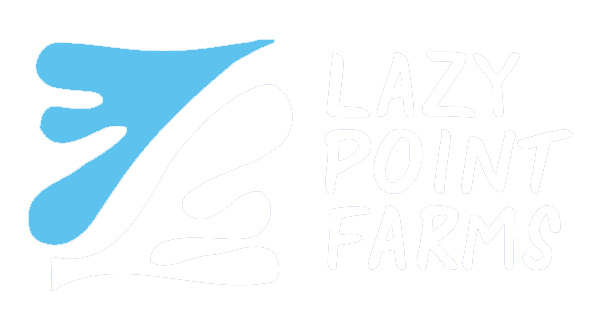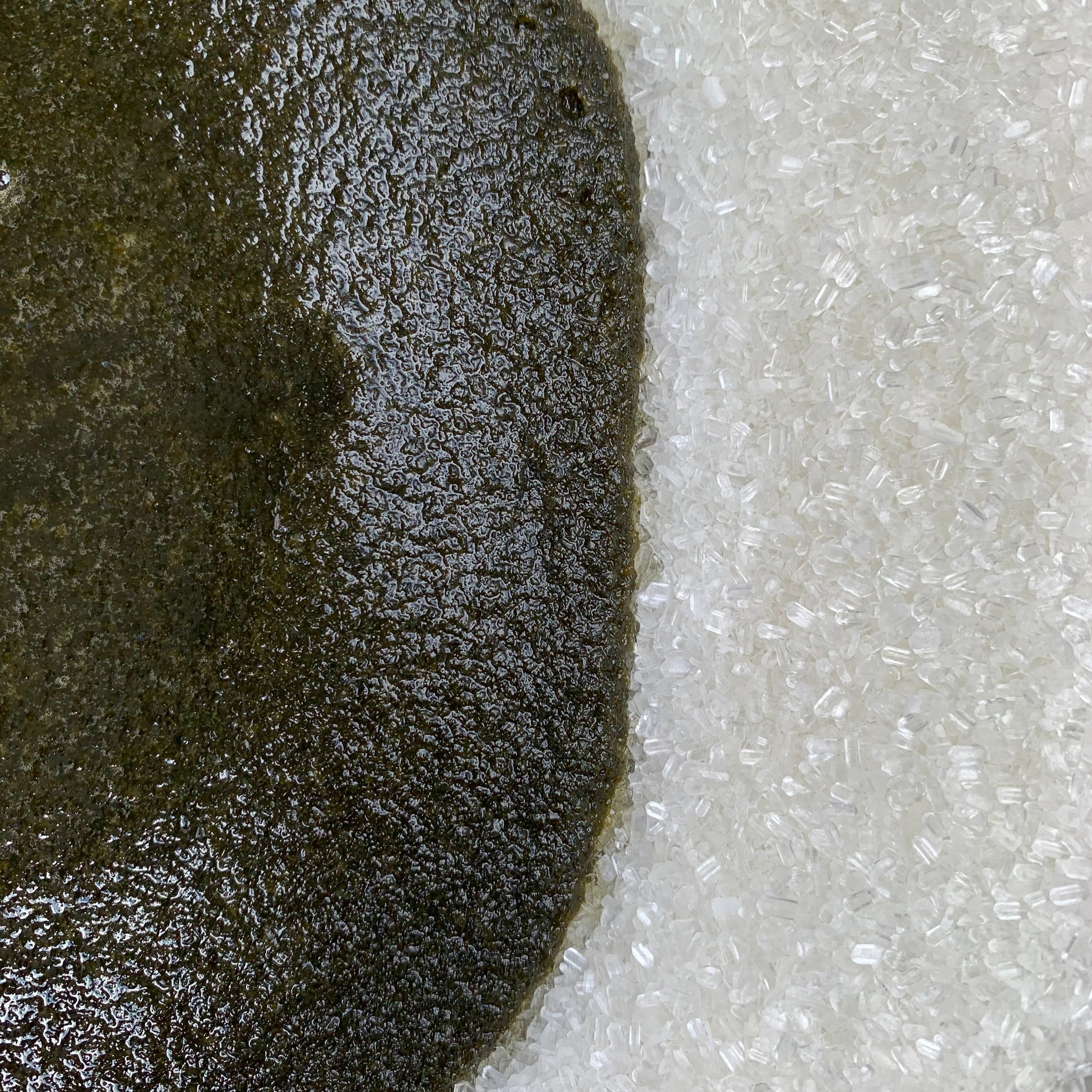
Lazy Point Farms is investing in the future of kelp. We’re excited by the endless possible ways that seaweeds can be incorporated into our daily life. Healthy nourishment for humans and livestock, earth-friendly alternatives to plastic, innovative cosmetics, and eco-conscious fertilizers for farmers are just the beginning!
If you’re interested in incorporating sugar kelp into your restaurant’s recipes or small business’ products, contact us for more information or read on for inspiration.
Kelp to Nourish Ourselves
At Lazy Point Farms, we believe in being kind to ourselves and our bodies. Seaweed is high in fiber and rich in iodine and other nutrients--it's one of the greatest natural gifts available that we can give to our bodies, both inside and out.
veggie tacos made with locally harvested pickled kelp stipes from Lazy Point Farms partner Susan Wicks' Violet Cove Oyster Company
Sugar kelp can be eaten fresh in salads. It has been blanched, cut into strips and served as a healthy pasta substitute. Kelp can be a base for soups and broths or used as an alternative to animal protein or added to vegan favorites for flavor and texture. It can be blanched and vacuum packed, fresh frozen, pickled and dried.
Seaweeds are becoming increasingly popular worldwide as a food source. We created Lazy Point Farms because we believe in the future of kelp and that it should be easily available to all American families: on plates, for pets, as skin care, and in gardens as fertilizer.
Kelp in cosmetic AND medical products
Delicious and nutritious as it may be, kelp has potential far beyond the dinner table. Brown seaweeds--like the sugar kelp grown by our Lazy Point Farms partners--contain a variety of soluble polysaccharides, making them useful for commonly manufactured products ranging from cosmetic to medical.
a body scrub made from a safflower sugar kelp reduction, calendula, vitamin E, rosemary, lavender, neroli, sea salt
Fucoidan, laminarin, and carrageenan, which all occur at high levels in marine flora, have the potential to act as a protectant against photo-damage. Alginate, a viscous gum derived from macroalgae, has anti-bacterial, drug delivery and tissue engineering applications and is widely used in modern commercial hydrogel wound dressings.
Kelp Can form the basis of Eco-conscious bio-plastics
Non-degradable packaging accumulates in landfills and on our beaches, with at least 14.5 million tons of plastic ending up in our oceans each year. Some innovative creators are finding ways to use kelp and seaweed as a substitute for synthetic fibers or plastic packaging, replacing products which are actively harmful to the environment with more eco-conscious alternative. With naturally occurring properties like hydrophobicity and permeability, kelp can be broken down into sugars and carbon molecules and then reformed along the same lines of the polymers that make up more traditional plastic packaging.
Kelp as a fertilizer in alternative agriculture
Products made from seaweed have the potential to go beyond merely replacing more harmful alternatives, and actually help heal the planet directly through their use.
Growing sugar kelp protects our shorelines and marine life. It forms the earth's "second lung" as it sequesters carbon more efficiently than trees, it restores biodiversity in our waters, and it scrubs the water from our nitrogen polluting habits.
Excess nitrogen from agricultural projects tends to end up in in local waterways. By using locally grown kelp that absorbs nitrogen from those same water sources, we can create a closed loop.
Sugar kelp, when applied as a soil amendment or foliar spray, also can have beneficial impacts on soils (increased moisture retention and beneficial microbial activity), root development, fruit production, and can be used as an alternative to nitrogen based fertilizers. Commercial nitrogen fertilizers in agriculture are a significant source of water pollution. Excess nutrients added to the soil but not fully used by crops wash downstream and result in contaminated water and disrupted ecosystems. When used instead of commercial fertilizers on local agricultural products, seaweed based fertilizers create a natural loop for nitrogen to move through the environment.
Kelp to feed livestock
Seaweed is food…but not just for people! Not only is it a much more sustainable product that the corn or alfalfa that often makes up livestock diets, it also contains a number of bio-available nutrients and minerals like Iodine that can improve the health of ruminants and even, potentially, be passed on to human consumers of dairy products.
But it doesn’t end there. Cattle and related livestock are responsible for 14.5 percent of global greenhouse gases, but studies have shown that when certain algae species are included in livestock feeds, harmful methane emissions can be reduced by as much as 82%.
Our Partners
Lazy Point Farms partners with a number of shellfish farmers and other aquaculture specialists to help encourage local production of sugar kelp!
We distribute that same kelp for market research with the help of Hamptons based East End Food Institute and Dr. Padilla-Zakour of Cornell’s Food Venture Center who have been helping us process, blanche, dry & pickle!
Resources
Want to learn more about growing seaweed safely as a food? Check out this guide to processing seaweed courtesy of our friends at SeaGrant.




